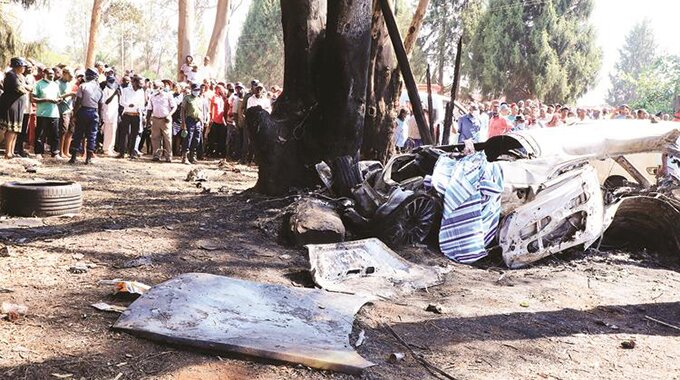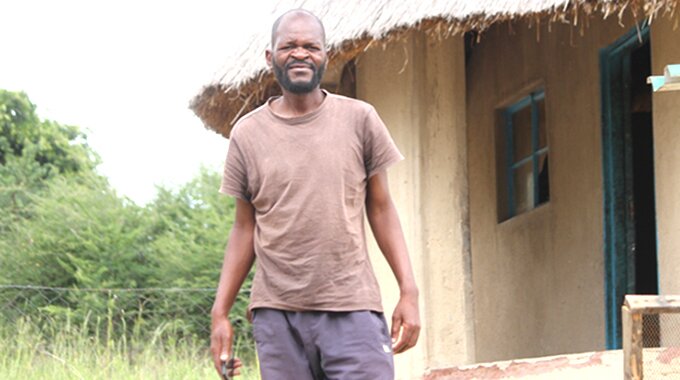The campaign to have sanctions against Zimbabwe lifted heated up this year, with Sadc taking the lead to persuade the United States (US) in particular to dump the sanctions imposed both by executive action and by its legislature.
For Sadc this is more than being a good neighbour: the sanctions hit our neighbours as well.
The basic sanctions have never been those trumpeted as targeting a small group of individuals and companies, although those have been damaging in making financial transactions with Zimbabwean banks more difficult and have consequently seen a number of banks reckoning that any tie with Zimbabwe is not worth the bother.
The main sanctions are those that force the US delegates to the World Bank, the International Monetary Fund (IMF) and other multi-lateral institutions to vote against any loan, any continuation of any programme, and any debt relief for Zimbabwe.
And the US is the biggest voter in the World Bank and the IMF and can find a few minnows who will go along with it to ensure it has a majority. In these institutions you vote by shareholding, not by country.
Advertisement
This hits Sadc. It is rather difficult to plan any regional development programme that excludes Zimbabwe.
We are not only a member in good standing, with our elections signed off by Sadc and following all Sadc rules, but there is also our geography, right there in the middle of Sadc and with border posts with five other Sadc states.
That geography is where Sadc is also hit by the sanctions. You simply cannot figure out how to develop transport links, or development along the Zambezi River, for example, without involving Zimbabwe.
And the Zimbabwean economy, both as a producer and a market, is a useful part of the growing Sadc economy and has to be integrated into regional plans.
The US legislation that hits us so hard is the Zimbabwe Development and Economic Recovery Act, Zidera. This starts off by openly admitting that Zimbabwe needs access to international finance and needs debt relief if it is to develop faster.
But after stating that self-evident truth, it cuts off that support for four main reasons: land reform is one, and is despite the rhetoric almost certainly the main one.
The second is that Zimbabwe was involved in the Democratic Republic of Congo war, supporting the legal Government under a Sadc treaty mind you and with other Sadc countries also supporting that Government. But this appears to be a dead letter since the legal Government did survive and all subsequent DRC governments have taken office after elections.
The third appears to be that opposition parties do not win Presidential elections in Zimbabwe.
Well they are allowed to compete, they have competed and they have lost.
Those elections and in particular the last two under our new Constitution, have been free of any hint of violence or malpractice, being monitored by large teams with Sadc taking the lead. Sadc insists members are run by Governments with popular mandates and puts in the diplomatic effort to ensure this.
Advertisement
In fact we are bound by Sadc agreements to follow basic democracy rules.
The fourth reason given is that we were squandering the money we had already received.
Well, we know our accounting was not wonderful 20 years ago, but the World Bank, the IMF and others were perfectly capable of using their own rules and internal auditing to sort that out. In any case, for our own reasons, we have done that. It is worth stressing that this was done for internal reasons, not because of pressure, and it was done so we can use our resources for development without relying on external funders.
Returning to the normal international finance world will accelerate development, not create development, and Zimbabwe does not have any problems with normal banking rules and regulations. After all, we are now enforcing these internally as good practice.
So we are left with bad feelings and the land reform.
Besides fixing the economic basics, the Second Republic has also been fixing the land reform.
For a start audits are in progress but already the policy of use it or lose it is in full force, and generally the land issue, internally, is no longer a political issue with even opposition leaders accepting it is an accomplished fact that cannot be reversed.
The biggest achievement was to reach an agreement with the displaced farmers over compensation.
The former farmers accepted that land reform was irreversible and that there was no compensation for land.
But the people of Zimbabwe, in approving the present Constitution by such huge majorities in Parliament and in a referendum, agreed that these former farmers were not to be punished for holding the land and doing a lot of work on that land. This was a Zimbabwean decision, not something forced on us.
Advertisement
The historical land grab through bogus treaties, war and plain theft was rectified. But the individuals who built dams, drilled boreholes, cleared arable land, upgraded the soil, and generally put in infrastructure must be paid for those improvements. The nitty gritty details were worked out by the Second Republic with the farmers and approved by Government and a large majority of the ex-farmers. Those holding virgin land for speculation obviously get nothing, but those who worked their land are being paid for that work.
So even if you accept the validity of Zidera, and it was bad legislation badly conceived, the conditions have been met.
Even the professionals in the US State Department seem to accept that, as recent contact between our Foreign Ministry and the State Department shows, along with re-opening of grants of relief aid.
But the compensation deal will go through a lot more smoothly if Zimbabwe has access to the same sort of multilateral support that other countries with land reform programmes received.
Land reform is common in the developing world, but the US only gets angry about it when large American corporations are involved, as in Guatemala, where the US organised a coup on behalf of United Fruit, or when white people are involved, as in Zimbabwe.
The European Union has been far more practical about the sanctions. Almost all EU sanctions have been lifted although admittedly there is still an arms embargo, not really a major issue since Zimbabwe has no plans to go shopping in Europe for arms.
So we are now just left with the US, where maintenance of the sanctions using the financial muscle of the US in global banking and global development finance is hampering the efforts of Zimbabwe to break free of poverty and do the right thing to all citizens.
We will develop, we will compensate former farmers for improvements, we will reach our Vision2030.
But we will do it faster if we were treated as an ordinary country in a normal world.
– HERALD








